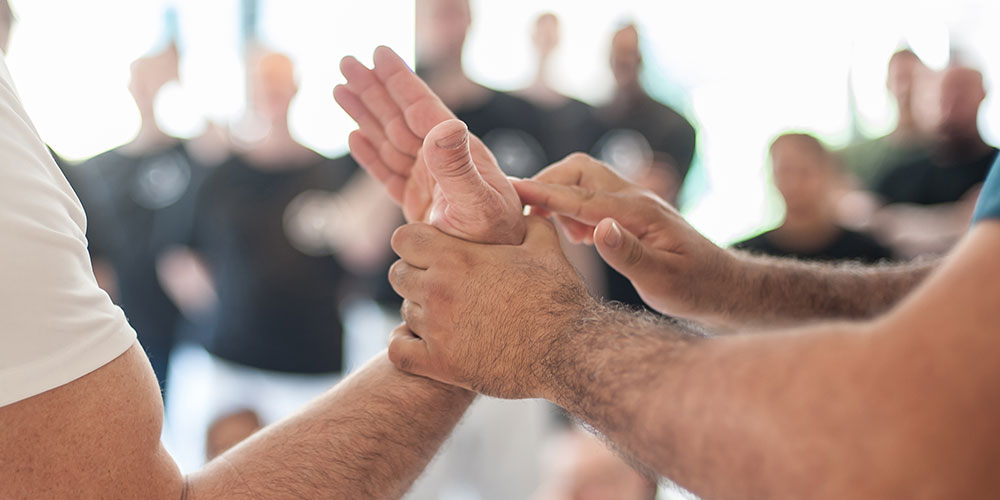Note: The views expressed by guest bloggers and contributors are those of the authors and do not necessarily represent the views of, and should not be attributed to, Campus Safety.
No matter your age, ethnicity, race, size, sex, or gender identity, learning self-defense strategies and techniques is always a good idea. But there are countless courses and programs out there, so how does someone looking to improve their physical safety choose one?
The best way to become proficient at defending oneself is to seek out a competent instructor and devote years of training to a martial art. However, the objective of a personal safety or self-defense seminar is to reach people who do not have the time or desire to dedicate themselves to formal training. While steady training and relentless practice are optimal, I feel a seminar conducted properly can have a lasting impact on the participants.
I also believe that a personal safety seminar can make an impact in major categories such as mindset, empowerment, and physical skills. A proper mindset is critical to defend oneself. Gaining situational awareness and boundary-setting skills are cornerstones of an effective avoidance strategy. The confidence that can be developed will be life-changing.
The empowerment comes from a newfound ability of being able to respond to a potential threat. Physical skills are developed when people are given the time and instruction to practice physical techniques in reality-based scenarios. Basic physical techniques such as palm heel, knee, and elbow strikes, standing, close quarters, and basic ground fighting drills can make a big difference. These are some examples of the tools that can stay with someone forever. Protective behaviors work best when they become regular habits. It is clear to me that a seminar can make a difference and develop the skill set needed to provide a safer environment.
9 Critical Components of a Self-Defense Class
Through heightened situational awareness skills, more effective verbal/nonverbal communication skills, and as a last resort – physical self-defense – self-defense classes can equip individuals with a more secure mindset by empowering them with the ability to be better prepared to defend themselves.
If you are looking to take a self-defense/personal safety class or have someone teach it at your place of work, here are nine critical components to look for:
- An emphasis on avoiding confrontations through awareness and boundary-setting skills
- Techniques that focus on powerful gross motor movements that have been pressure tested and proven to be effective, easy to learn, and retainable
- Distance control with a curriculum of techniques covering standing, close quarters, and ground fighting techniques
- An emphasis on impact development
- Heavy emphasis on mindset and developing the willingness to respond immediately
- Focus on reversing the confrontational dynamic with a continuous counterattack that will eliminate the threat if avoidance is simply not possible
- An emphasis on natural everyday positions as a fighting stance from where you can control space and become ballistically offensive in a second
- An understanding of adrenal stress and physical performance under stress
- The use of protective equipment is particularly helpful in providing the participants with realistic feedback simulating an actual attack
Want to learn more about protecting yourself? This article, 3 Self-Defense Strategies Everyone Should Know, offers lessons on:
- Understanding the victim selection process
- A predator’s precursors to violent actions
- Self-defense tactics in everyday settings such as restaurants
- Effective verbal/nonverbal communication skills
- De-escalation skills
- The adrenal stress response when under extreme duress
Bill Pinckney is an adjunct professor in New Jersey State University’s kinesiology department. He primarily teaches Karate and personal safety classes.













